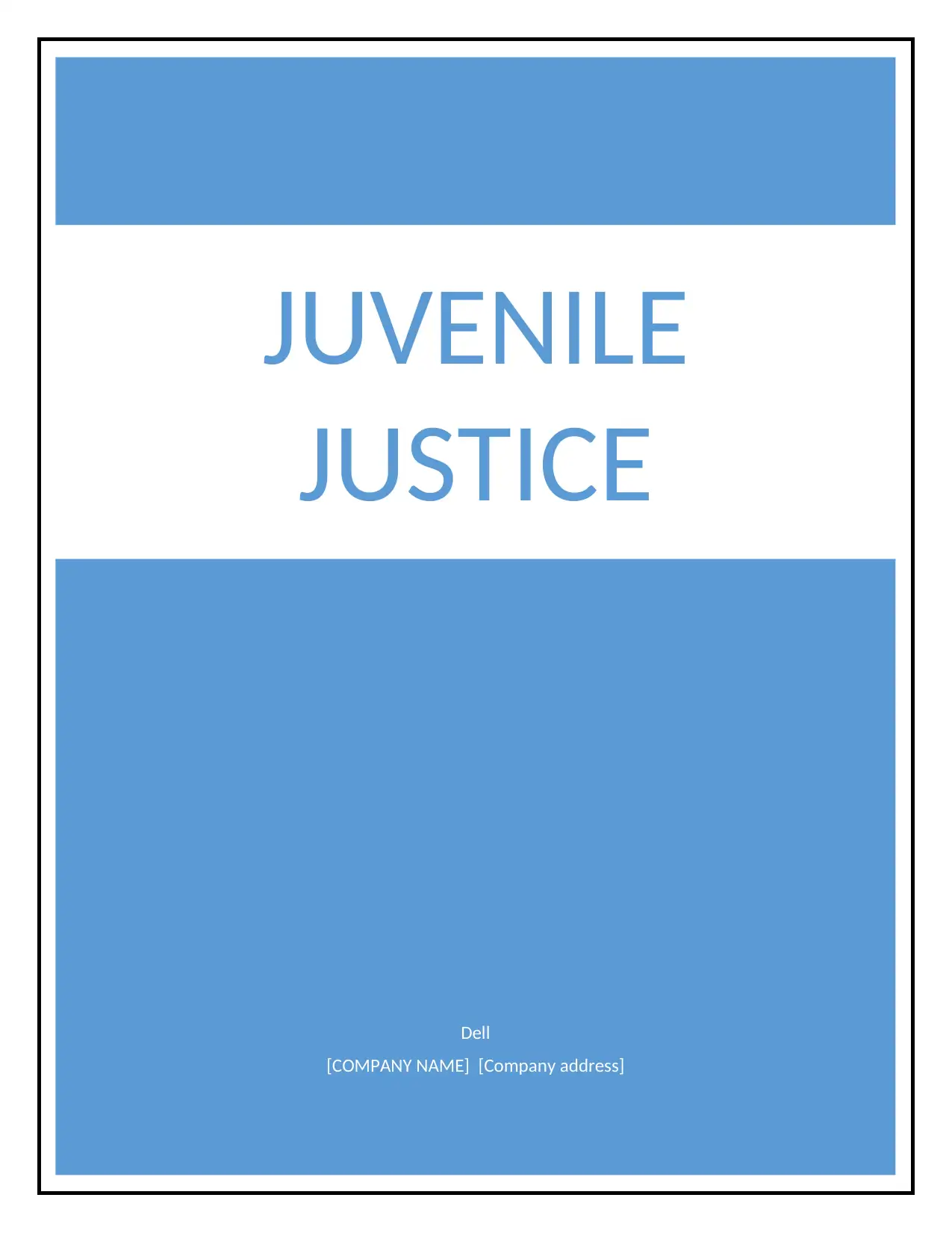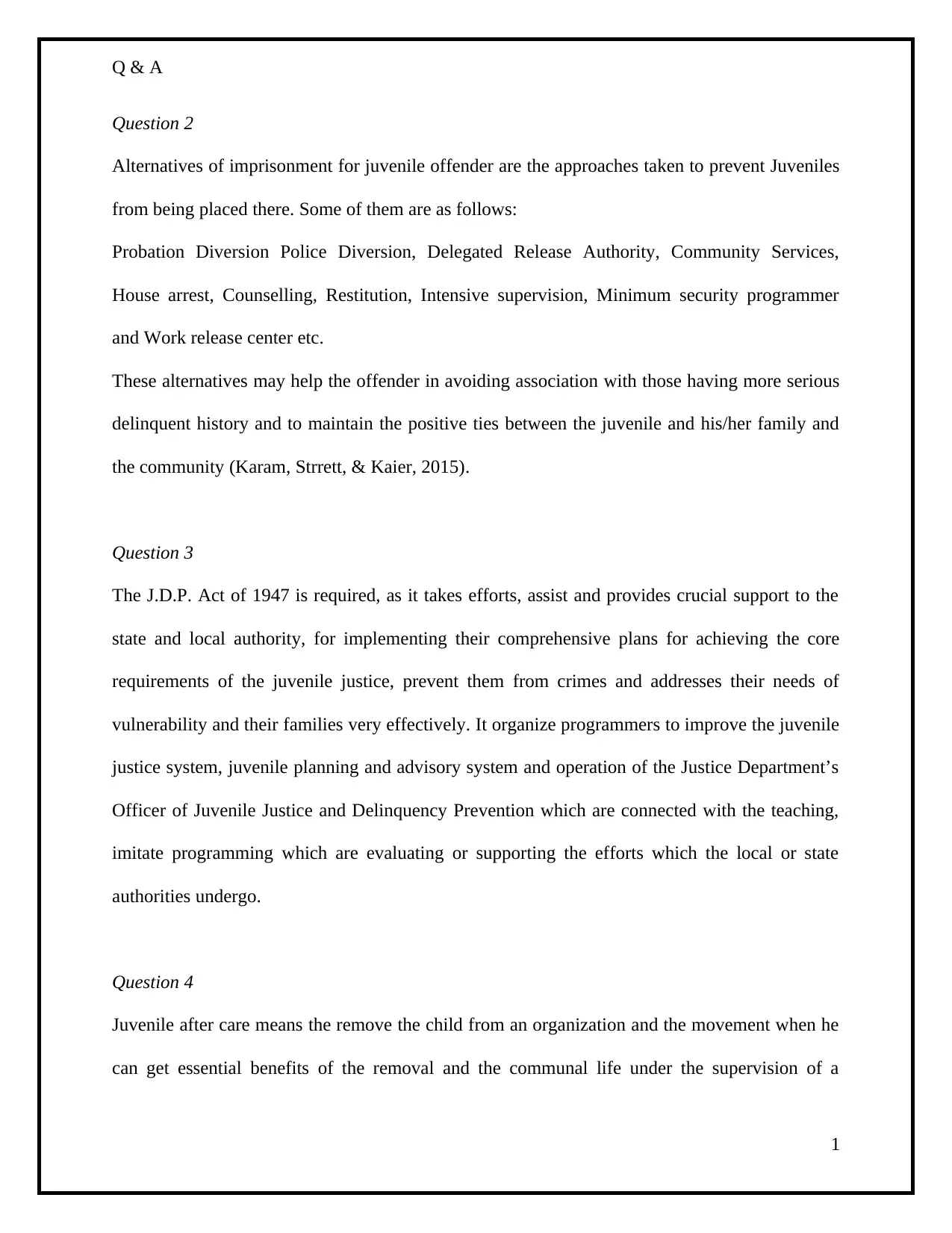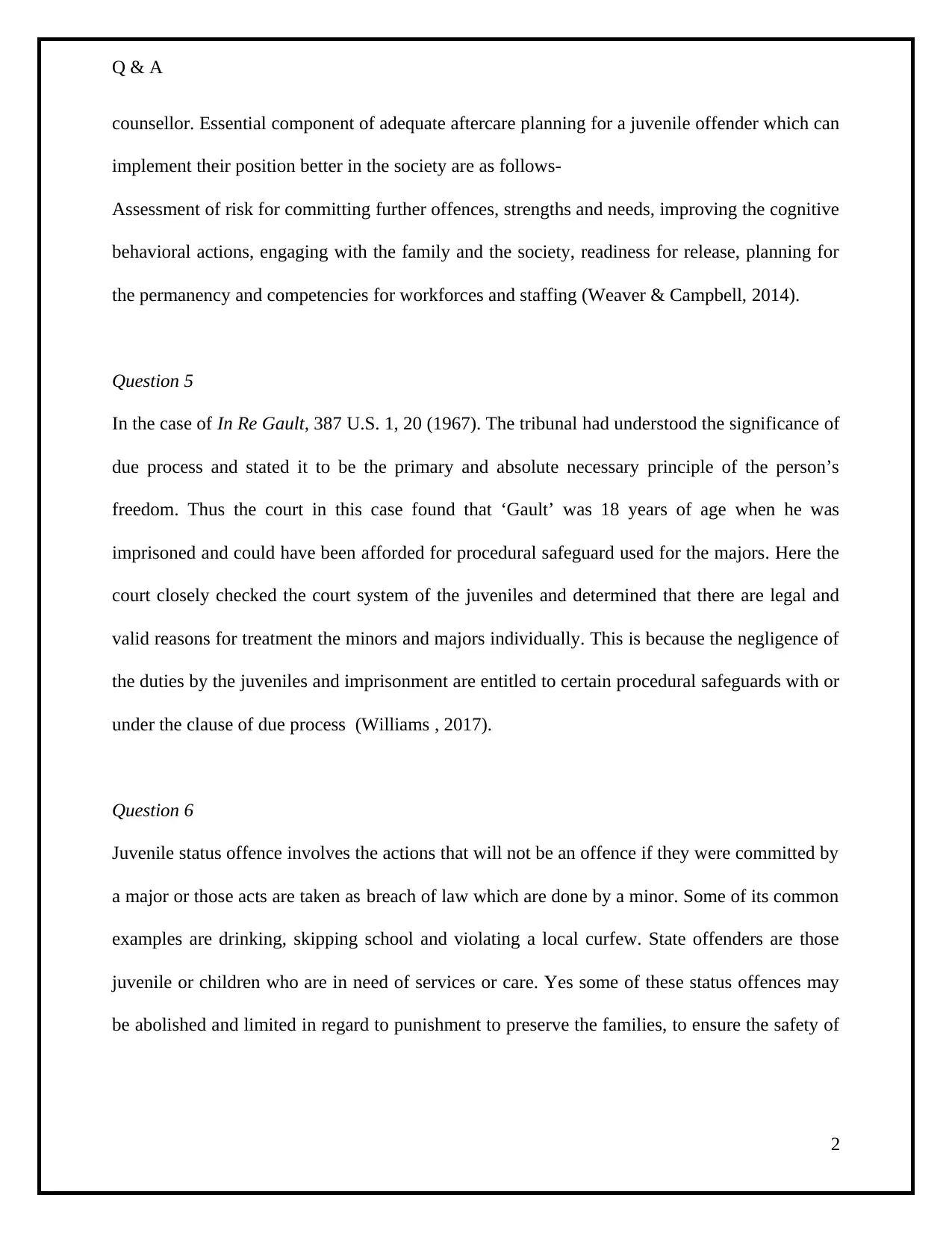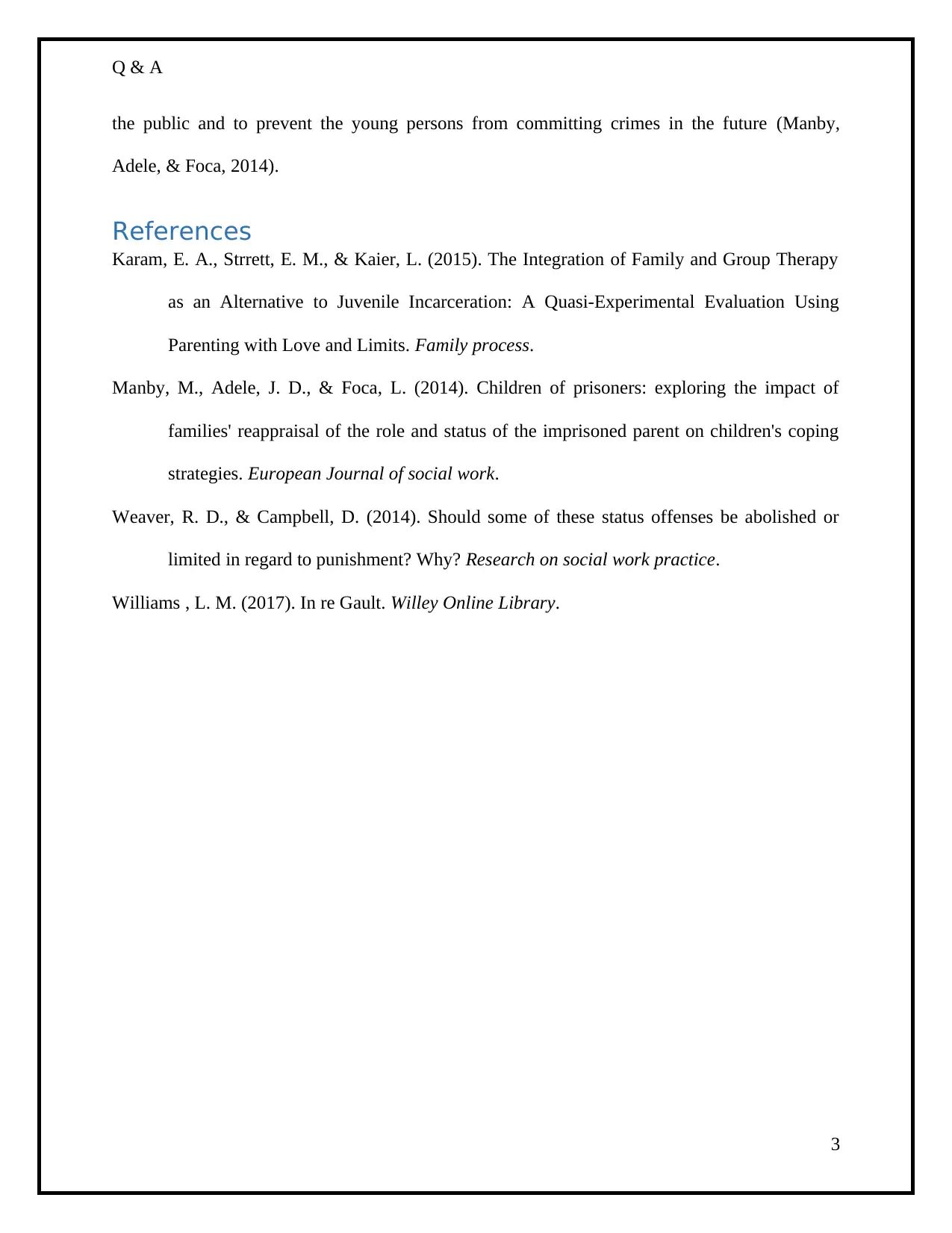PSY-623 Worksheet: Alternatives for Juvenile Offenders, Spring 2024
VerifiedAdded on 2022/12/05
|4
|751
|145
Homework Assignment
AI Summary
This homework assignment for PSY-623 focuses on juvenile offenders, covering topics like the Doctrine of Parens Patriae, alternatives to imprisonment, the role of the J.D.P. Act of 1974, and aftercare planning for juvenile offenders. It also examines the case of In Re Gault and the concept of juvenile status offenses. The assignment provides definitions, explanations, and supporting information from scholarly sources, offering a comprehensive overview of the juvenile justice system and the processes involved in rehabilitating and reintegrating young offenders into society. The student answers questions regarding the role of the state in juvenile cases, the importance of due process, and the various approaches used to address juvenile delinquency, including probation, diversion programs, and community services. The assignment demonstrates an understanding of key legal concepts and practical strategies for working with juvenile offenders.
1 out of 4









![[object Object]](/_next/static/media/star-bottom.7253800d.svg)